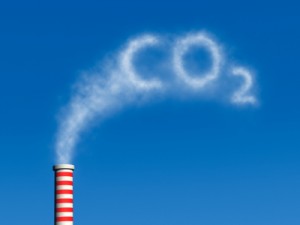By John Stang, originally published by Crosscut
 Temperatures are rising on Mars. Jupiter too. And on Triton, the largest of Neptune’s 14 moons. And none of these solar system bodies has any sport utility vehicles driving around on their surfaces.
Temperatures are rising on Mars. Jupiter too. And on Triton, the largest of Neptune’s 14 moons. And none of these solar system bodies has any sport utility vehicles driving around on their surfaces.
This is what climate change expert Jay Lehr, a physicist with the Chicago-based Heartland Institute, told the Washington Senate Environmental and Energy Committee Wednesday. His point: Rising temperatures on Mars, Jupiter and Triton show that global warming on Earth is not manmade.
Lehr was one of several climate scientists, with different views on climate change, who briefed the committee on Tuesday and Wednesday. The committee expects to continue discussing how to deal with climate change Thursday.
While allowing that the Earth’s carbon dioxide content is rising, Lehr argued that the increase is not harming life on this planet. “I would say that the increase in carbon dioxide is 100 percent a blessing,” he said.
Near the beginning of the Industrial Revolution — 250 years ago — atmospheric carbon dioxide levels were roughly 280 parts per million. Today, the density of carbon dioxide in the atmosphere is at about 390 ppm. The increase of CO2 in the air — and sea — is expected to significantly accelerate this century.
Lehr contended that atmospheric carbon dioxide could reach 500 ppm to 600 ppm with no ill effects. “There is no tipping point,” he said, “because there is no additional absorption of warmth.”
“I don’t know why the state of Washington is considering any legislation to reduce greenhouse gases,” Lehr continued. “… because anyone with an ounce of sense can see that the state of Washington can’t do anything to impact the global situation.” Lehr contended that trimming carbon emissions would hurt the state economically. “The most zealous environmentalists don’t like the environment,” he said. “They just don’t like people.”
A task force of legislators has wrestled with how Washington should deal with climate change and increasing carbon emissions. It has split along party lines on what to do. The Republicans want to explore expanding nuclear power and cutting back on legally targeted reductions in CO2 emissions, set by a 2008 state law. Democrats want to set carbon emissions limits and install a cap-and-trade program to reduce industry emissions as a way to meet the 2008 targets.
The vast majority of scientists accept that carbon emissions contribute to global warming, which has ecological ripple effects. One effect is the rising acidity levels in Northwest waters, which is harming oyster populations in Washington’s Dabob and Willipa bays and in Oregon’s Netarts Bay. The acidity causes shells to crumble faster than the oysters can regenerate them.
The problem has cut sharply into the most recent oyster harvests. Billions of oyster larvae have died. Scientists have pinpointed a drop in the water’s pH level as the culprit. The acidification trend has two primary contributing factors: additional carbon dioxide in the air and nitrogen-laden nutrient outlfows that seep from cities, septic tanks and agriculture into the sea.
Recent studies have that this ocean acidification is accelerating as global warming gases build up in the atmosphere. The economic component of this phenomenon is potentially devastating for Washington’s economy. The state’s shellfish industry, one of the largest in the world, brings in about $270 million annually and employs roughly 3,200 people, most in rural areas, where jobs are often hard to come by.
The Senate Environmental and Energy Committee heard testimony from four University of Washington scientists Tuesday that contradicted Lehr’s contentions. UW researchers supported the scientific concensus that rising CO2 emissions are contributing to global warming.
The Senate committee invited Lehr to testify. “One of the things this committee is trying to do is bring in all viewpoints,” said committee chair Sen. Doug Ericksen, R-Ferndale. Ericksen defended inviting a scientist whose view stands outside the mainstream school of thought. “I find it odd that the media doesn’t want a different point of view to be heard,” he told Crosscut. “I’d love to see an article about whether the science he presented is accurate or not.”